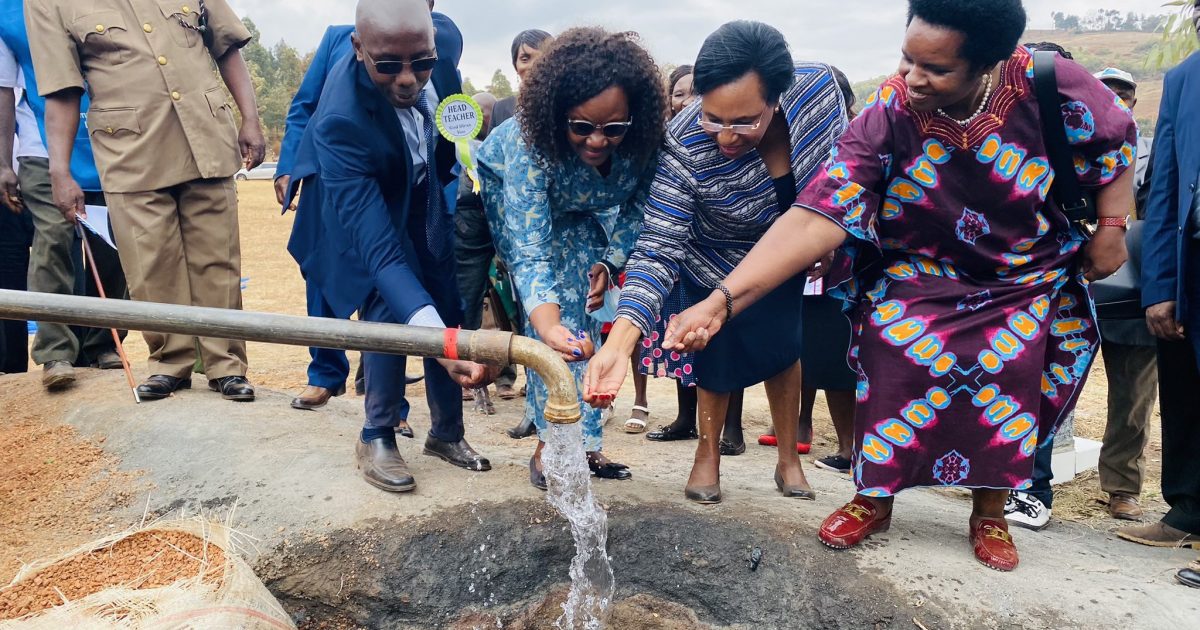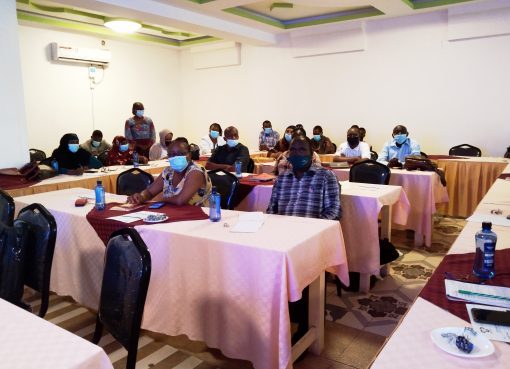Learners from Marinya- A- Ruibi primary school, adjacent day secondary school and the neighbouring community in Meru County have a reason to smile after FAO in collaboration with the national government inaugurated a Sh12million borehole that will be supplying them with water for domestic and irrigation use.
Speaking during the event that was held at the school grounds, FAO’s country representative Ms Carla Mucavi said the organisation was honoured to be part of the occasion graced by Public Service, Gender and Senior Citizens Affairs Cabinet Secretary Prof. Margaret Kobia, which will be a game-changer to the Marinya- A- Ruibi community.
Speaking during the function, Mucavi said this gesture was part of FAO’s commitment to work with the Government of Kenya in building a food-secure country, free of hunger and malnutrition, where food and agriculture contributes to improving the living standards of all, especially the most vulnerable in an economically, socially and environmentally sustainable manner.
“However, we cannot achieve food and nutrition security without water in adequate quantities and of good quality. In addition, we can no longer solely depend on rain-fed agriculture; we need to think of other ways of producing food, without necessarily solely depending on rains which are becoming erratic,” she said.
The FAO representative added that the reality of Climate Change that is impacting people’s lives and livelihoods through prolonged and intense drought, floods, pests such as the desert locust and the African army worm requires that farming be done differently by adopting Climate Smart Agriculture best practices, including access to water.
“FAO is therefore happy to have partnered with the government of Kenya through various Ministries, Departments and Agencies of the National and the County Government of Meru to realize this objective,” said Mucavi.
She also thanked the Marinya- A- Ruibi Primary School and its alumni, the National Irrigation Authority, and the Ministry of Water, Sanitation, and Irrigation for their role in the conception, design, and implementation of the borehole project funded by FAO.
Water from the borehole is set to improve reliability and water access for multiple uses, including supply of domestic water for both primary and secondary school, three churches and a dispensary, communal water points as well as livestock watering and drip irrigation of two one-acre plots each for the primary and secondary school.
This project entails drilling and equipping of the borehole, which is already carried out, a solar power system, a reliable and clean-energy solution for pumping the water, pipes for supplying water from the borehole to the users and two raised water storage tanks of 10,000 liters each.
Mucavi noted that the project’s solar system, pipes, tanks, drip irrigation, and communal water point components are yet to be finalized and FAO is committed in completing them in due course.
“Let’s also not forget the importance of governance of these facilities to ensure that this vital resource benefits the school and the community for years to come and the future generations,” she said.
On her part, the Public Service CS said this will improve food and nutrition security in the two schools and support Competency Based Curriculum (CBC), the 4K Club and the Kenya Certificate of Secondary Education (KCSE) agriculture projects, among other farming activities.
Prof. Kobia also said the availability of water would also improve hygiene conditions in the two schools for the well-being of their students.
The borehole will further alleviate the burden shouldered by women and girls in this community of walking for long distances in search of water and instead they will now spare time to focus on other priorities, she added.
“It will also limit their exposure to harmful situations such as abuse and exploitation along the way,” said Prof. Kobia.
By Dickson Mwiti




